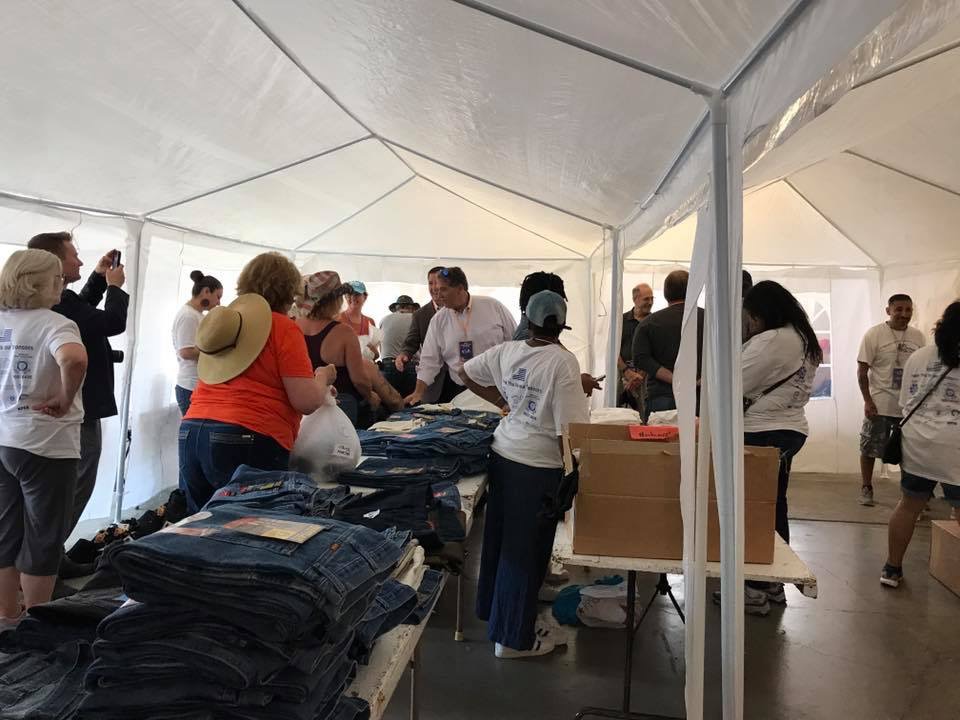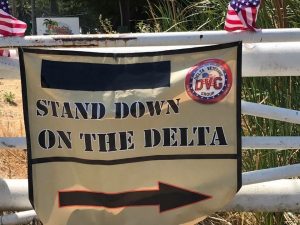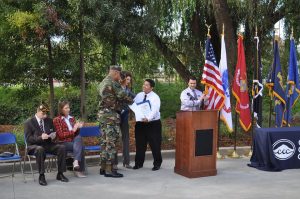
Volunteers assist veterans during a visit by Assemblyman Jim Frazier (center) during the 2017 Stand Down on the Delta at the Contra Costa County Fairgrounds, Aug. 11-14. Photos by Genevieve Mann
Delta Veterans Group would like to thank all of the volunteers that served for Stand Down on the Delta, 2017.
With your help, our community was able to provide services for over 260 veterans and their families.
Over 1,150 volunteers came together over 10 days to set-up, serve and tear-down our encampment. Over 5,800 meals were served in just four days.
Veterans received much needed supportive services, medical services, dental care, vision care, and mental health services. We also had barbers, beauticians, entertainment, spiritual guidance and much more over the four days. Plus – their animals were cared for onsite by C.A.R.T. – the Contra Costa County Animal Rescue Team.
We were also able to take over 40 veterans fishing on our Delta Shoreline…and yes, they caught a lot of fish…The largest fish was caught by a female veteran for the second Stand Down in a row…
All of this could not have happened without you – the volunteer.
Respectfully,
Gerald JR Wilson, President/Executive Director, Delta Veterans Group – Stand Down on the Delta


